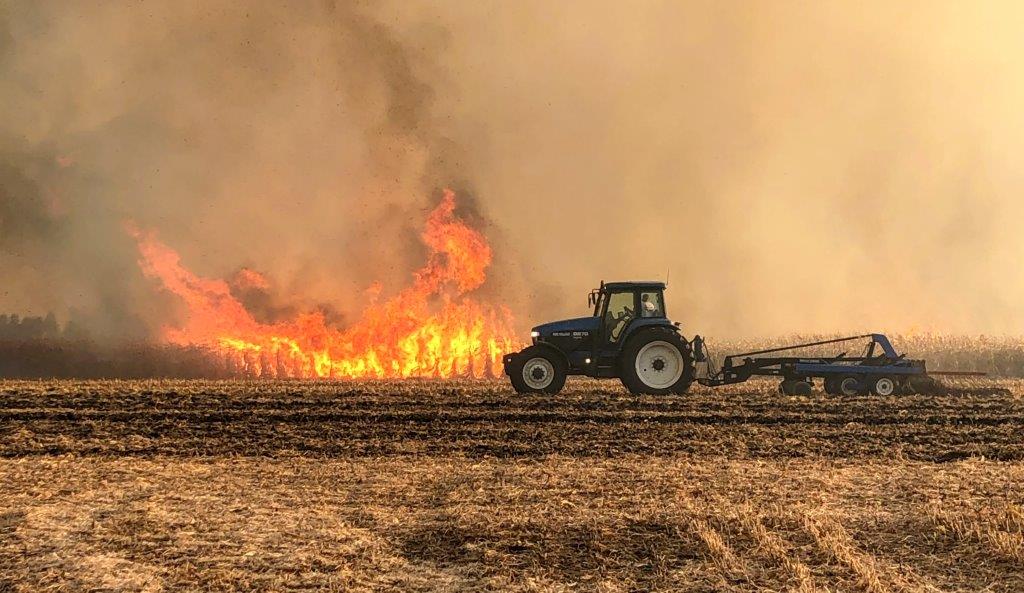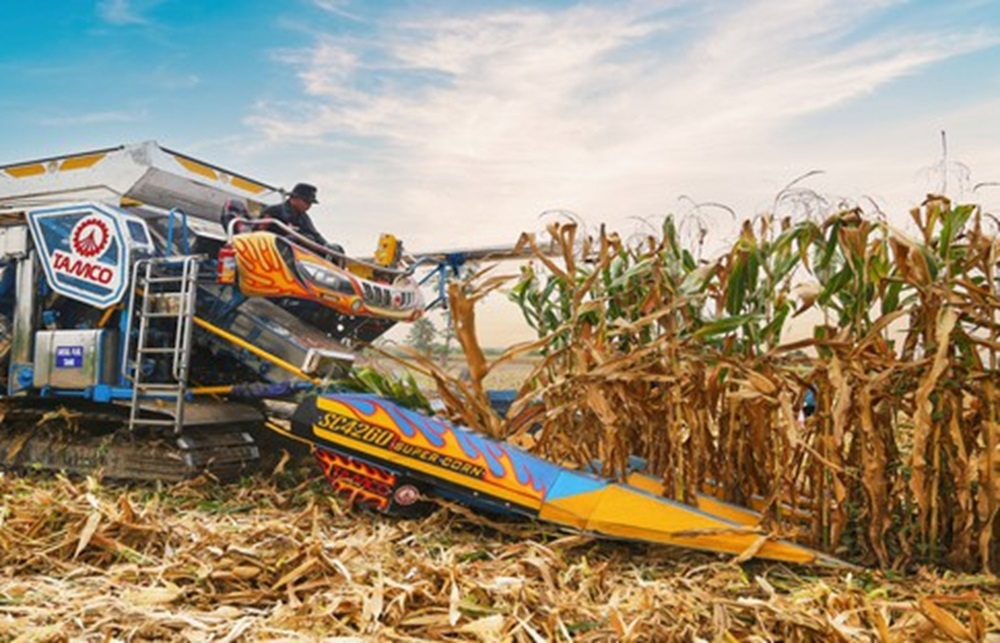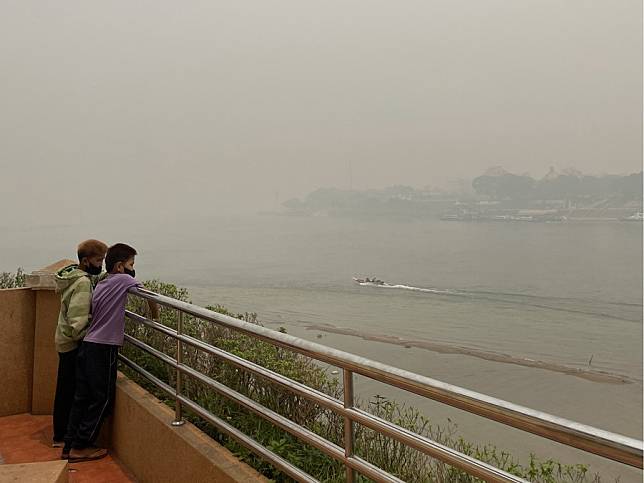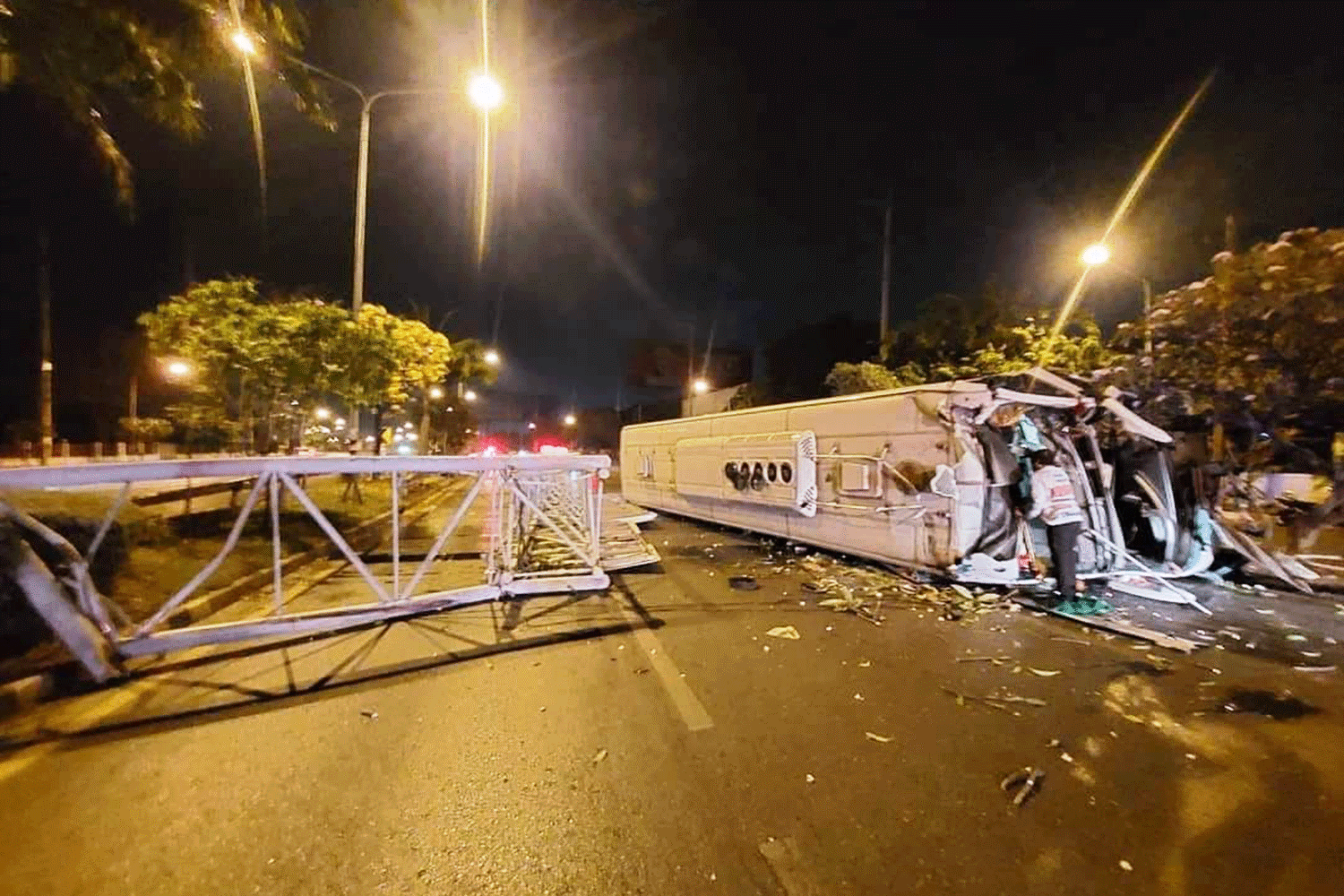Thailand’s cabinet agreed a restriction on maize imports from places where farmers burn off their fields on Tuesday, with legislation to go into effect this year. The move aims to reduce the yearly haze-fest, which the administration mostly blames on neighboring countries.
According to government spokeswoman Chai Wacharonke, the cabinet has directed the Commerce Ministry to draft an order prohibiting imported maize from places that practice field burning in order to address the yearly smoke-induced pollution that raises health concerns.
The decision reflected the government’s worry about air pollution produced by field burning in neighboring countries, he explained. To demonstrate the link, officials making the choice would compare maize cultivation areas to hotspot maps created using satellite data, Mr Chai added.
Any import bans would follow the World Trade Organization’s relevant guidelines. Their implementation, however, would have to wait for the passage of a proposed Clean Air Act, which is expected this year, he said.
According to the spokeswoman, Thailand’s market demand for maize is 8.9 million tonnes per year. Domestic production is approximately 4.9 million tonnes per year.
Thailand’s Maze Imports
Thailand now imports around 1.6 million tonnes of maize from neighboring countries, including 600,000-700,000 tonnes from Myanmar, 300,000-400,000 tonnes from Laos, and approximately 100,000 tonnes from Cambodia.
More than 2 million tonnes of maize are acquired from other countries, primarily Brazil.
Speaking following Tuesday’s cabinet meeting, Prime Minister Srettha Thavisin emphasized that any efforts to limit or ban imports from neighboring nations be backed up by evidence that these products are linked to crop burning.
More critically, all of these measures must carefully adhere to international trade agreements with the WTO, of which Thailand is a member since January 1, 1995.
He stated that the measures will be covered under the Ministry of Commerce’s Exports and Imports Act, which seeks to combat haze pollution, particularly during the peak season of agricultural burning.
Furthermore, the PM stated that the limits imposed on maize imports must be consistent with the clean air law, which is nearing completion in the House of Representatives.
Burning actions in neighboring nations
Mr Srettha stated that transboundary haze pollution caused by burning actions in neighboring nations’ crop-growing areas continues to affect Thailand, which is why import bans and restrictions are deemed necessary.
At Tuesday’s cabinet meeting, Mr Srettha stated that he does not want Thailand to continue importing maize from countries where agricultural burning happens. According to a meeting source, a few cabinet ministers opposed his proposal.
Deputy Commerce Minister Napintorn Srisanpang, for example, stated that such an import restriction could never be imposed since it would violate WTO laws unless the clean air law was first enacted.
And, while Thailand hopes to persuade other countries to cease burning agricultural land, Mr Napintorn believes Thailand must also stop burning.
Mr Srettha also stated after the meeting in Phayao that he did not declare Chiang Mai a disaster zone because he was concerned that it would harm internal trade as well as the tourism sector.
On Monday, Mr Srettha wrote on X that the government decided not to declare Chiang Mai a disaster zone despite its growing air pollution for fear of harming the province’s tourism business.
“The effort that the government has made from last year to this year has helped alleviate the fine dust problems, which have fallen to one-third or two-thirds of previous levels in some areas, although Chiang Mai’s weather has improved, the government will continue doing its duty,” he said.
Meanwhile, a Facebook user named “Tanuwat Weraphongkamon” encouraged the premier to quit blaming the weather.
“The internet is now driving the globe. Do not attempt to deceive. People from other countries visit Chiang Mai. “I offer to be your adviser for free,” he wrote.
In addition, he advised that the premier distribute 90 face masks to at least 80% of Chiang Mai province citizens over the course of three months.








